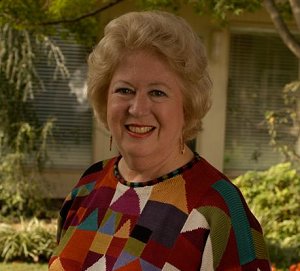MEDIATION OF WORKPLACE ISSUES
Employment relations seem to be getting more complex. Today we are not merely hired until our boss says you’re fired. Some of us have contracts for employment. Some employees work under contracts established between the company and a recognized union. These contracts usually cover issues of hiring, termination, hours, wages, and working conditions. Some employees are protected from discrimination in the workplace — protected from prejudicial actions against a person because of race, color, creed, religion, sex, age, disability, national origin. A worker is protected from sexual harassment.
In Tennessee, an employer can still let an employee go at will except in breach of a contract, private or union, or if the employer is practicing unlawful discrimination.
 Many of these issues give rise to conflict and, when they do, work and the work place suffer. It seems the entire working environment is affected, so quick resolution is desirable.
Many of these issues give rise to conflict and, when they do, work and the work place suffer. It seems the entire working environment is affected, so quick resolution is desirable.
Mediation is a process that can help employers and employees, co-workers, management and labor in dispute resolve their conflicts. Mediation, a form of assisted negotiation with the help of a trained impartial third party called a mediator, can help people in dispute negotiate a settlement of the conflict instead of litigating it. Employment litigation is extremely costly and lengthy.
So why mediate an employment dispute? Because its quicker, cheaper, and, most importantly, it allows the parties to be in control of the outcome. It may be possible to resolve the dispute and save employment relationship. Resolve it pre-suit and maybe someone doesn't have to get fired!
Going to mediation before a lawsuit is commenced spares you unwanted publicity. You may find your judge ordering you to try it. The process is confidential and if it doesn’t work, the judge cannot know why it didn't or what had been negotiated. You have nothing to lose and a lot to save. You retain all of your legal rights.
What kinds of employment disputes are good for mediation?
Management conflicts, departmental issues, labor/management, termination, hours, wages, working conditions, sexual harassment, and other claims of discrimination.
Sexual harassment is especially well suited for mediation since confidentiality is to be prized. In mediation, it may be possible to resolve the conflict without having to terminate everyone involved.
Any time a continued employment relationship is desired or required after the resolution of the conflict, mediation, being a cooperative process, heightens the chance of a cooperative continuing relationship.
I am a trained mediator and drafted Tennessee's employment discrimination law -- The Human Rights Act -- in 1972. I have served on the EEOC's mediation panel and the Department of Justice's Americans with Disabilities mediation panel. Also, I perform mediation for the U.S. Postal Service.
While I drafted the Tennessee law dealing with discriminatory practices in public accommodations, employment and housing, I firmly believe mediation is a method far superior to filing charge or law suit to resolve these kinds of problems.
Thank you for your attention.
I prefer the facilitative method, facilitating negotiations between the parties face to face rather than exclusively shuttling back and forth between separated parties. Clients report they feel more involved in the decision-making process, each having had a chance to be heard. Facilitative mediation hastens trust of the mediator; there is less wondering and worrying what’s being said in the other room.
In facilitative mediation, each client gets to tell his or her story to the other. Options for possible resolution get listed (I use a flip since I don’t know if the person sitting in front of me is a right brain or left brain learner), discussed, and chosen. And yes, this process allows each disputant to observe just how each may be perceived by a judge or jury. Facilitative mediators may meet in private sessions with each side to go through a specific process that helps the attorney chart and evaluate the case for the client.
Transformative mediation, which uses the facilitative method, is more concerned with the process of conflict resolution than the resolution itself. This is often contrasted with evaluative mediation that is so "resolution focused" you may see the mediator evaluating the case for each side and then telling them how they ought to settle. There is a form of ADR called Early Neutral Evaluation that does just that. Employing empowerment and recognition as techniques, transformative mediation hopes to transform the clients from angry, self- centered, win/lose positioned disputants to cooperative, acknowledging, now and future focused, responsible ones. And maybe even get to resolution. It allows a lot of leeway for the clients to frame the issues and the discussion. Transformative mediators use the facilitative style. Thus, should the clients not resolve all issues in that mediation session, the likelihood of them being able to do so before resorting to litigation is high. According to Professor Robert Baruch Bush of Hosta University and his co-author Joseph Folger in their book, The Promise of Mediation , the mediation process should promise something more to the client than just closing the file.
Perhaps my style is best described by Professor/attorney/mediator David Hoffman in his article "Confessions of a Problem-Solving Mediator" in the 1999 Volume 23 Number 3 newsletter of the Society of Professional in Dispute Resolution. He contrasted transformative mediation with problem solving and suggested we experienced mediators intuitively engage techniques that fall somewhere in between.
Again, the trick and talent of the experienced mediator is to know what style to use -- and when.
Certification of mediation specialist is not currently available in Tennessee. Approved by the Tennessee Supreme Court’s Alternate Dispute Commission under its Rule 31 for civil law and family law cases.

